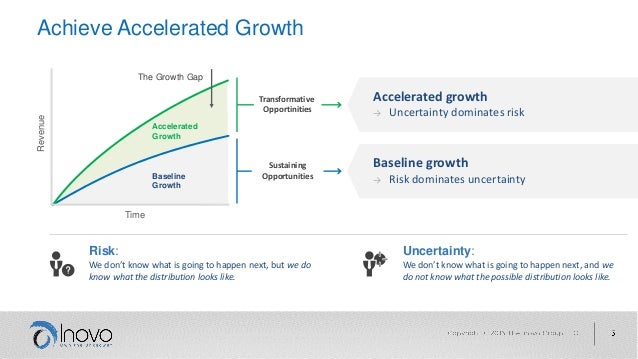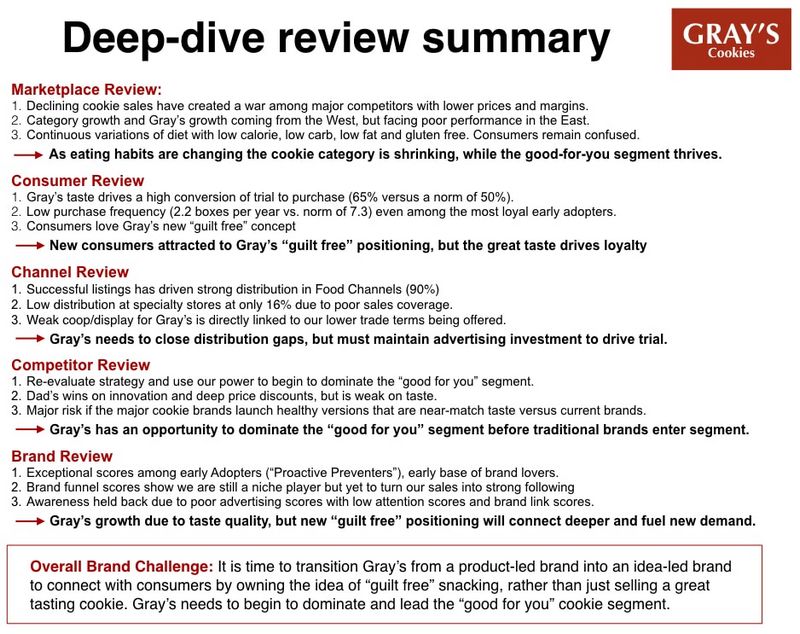
Insurance Company Tactics and Strategies: A Deep Dive.
Insurance is a complex industry that requires a deep dive into the various tactics and strategies employed by insurance companies. In this comprehensive analysis, we will explore the inner workings of insurance companies and shed light on their operational approaches.
Insurance companies operate with the objective of managing risks and providing financial protection to their clients. To achieve this, they employ a range of strategies that aim to minimize losses and maximize profits. These strategies involve assessing risks, setting premium rates, and designing insurance policies that cater to the specific needs of different customer segments.
One of the key tactics employed by insurance companies is underwriting. Underwriting involves evaluating and selecting the risks that the company is willing to insure. This process includes analyzing an individual’s or an entity’s risk profile, such as their health, age, occupation, and previous insurance claims. By carefully assessing these risks, insurance companies can determine the appropriate premium rates to charge and ensure their profitability.
Another important strategy utilized by insurance companies is investment management. Insurance companies pool the premiums they receive from policyholders and invest these funds in various financial instruments, such as stocks, bonds, and real estate. The returns from these investments play a crucial role in ensuring the financial stability of the insurance company and its ability to pay out claims.
In this comprehensive analysis, we will uncover the intricate tactics and strategies that insurance companies employ. By delving into the inner workings of these companies, we aim to provide a comprehensive understanding of the insurance industry and its operational approaches.
Overall, the insurance industry is a dynamic and evolving sector that utilizes a variety of tactics and strategies to effectively manage risks and provide financial protection. By gaining insight into these tactics and strategies, individuals and businesses can make informed decisions when it comes to purchasing insurance coverage.
An Overview of Insurance Companies
When diving into the world of insurance, it is essential to understand the tactics employed by insurance companies. These companies, specializing in managing risk through policies and contracts, play a crucial role in today’s society. An insurance company provides individuals and businesses with financial protection against various risks, such as property damage, health issues, liability, and more.
Insurance companies utilize a range of strategies to operate successfully. One of their key tactics involves assessing risk and determining appropriate premiums. Through underwriting, companies evaluate the likelihood of a claim occurring, taking into account factors such as age, health history, occupation, and others. This process helps insurance companies predict the frequency and severity of potential claims and enables them to set premiums accordingly.
In addition to underwriting, insurance companies utilize various marketing techniques to attract customers. They employ advertising campaigns, including print, TV, radio, and digital media, to raise awareness about their products and services. Companies also utilize agents and brokers who provide personalized assistance and guidance to potential customers, helping them understand different insurance options and choose policies that best fit their needs.
Insurance companies also rely on data analysis and actuarial science to make informed decisions. Actuaries assess risks, analyze statistical data, and develop mathematical models to estimate the probability and cost of potential losses. This information allows insurance companies to set premiums, establish reserves, and ensure financial stability.
Furthermore, insurance companies invest the premiums collected from policyholders strategically. By investing in a diverse portfolio, they aim to generate returns and maintain financial security. These investments often include stocks, bonds, real estate, and other assets. The earnings from these investments help insurance companies pay claims, maintain operations, and generate profits.
In conclusion, insurance companies employ various tactics and strategies to provide individuals and businesses with financial protection against risks. Their methods encompass underwriting, marketing, data analysis, and investment management. By understanding these tactics, individuals can make more informed decisions when selecting an insurance policy that suits their needs.
Importance of Insurance in Today’s World
In today’s fast-paced world, insurance plays a crucial role in providing financial protection and peace of mind. It is a form of risk management that helps individuals, businesses, and organizations safeguard against unexpected events and uncertainties.
Insurance companies employ various strategies and tactics to offer a wide range of insurance products that cater to different needs and circumstances. These can include life insurance, health insurance, property insurance, auto insurance, and more.
One of the main reasons insurance is important is because it helps individuals and businesses recover from sudden financial losses. Whether it is a car accident, a natural disaster, or a medical emergency, insurance provides the necessary coverage to mitigate the financial impact of such events.
Additionally, insurance promotes economic stability by providing a safety net for individuals and businesses. It encourages risk-taking and entrepreneurship by reducing the fear of potential financial ruin. This, in turn, helps foster innovation, growth, and economic development.
Insurance also promotes social welfare by ensuring that individuals and families have access to essential services and resources. Whether it is healthcare, education, or housing, insurance can help alleviate the financial burden and improve quality of life.
Furthermore, insurance fosters a sense of security and peace of mind. Knowing that you are protected against unforeseen events can significantly reduce stress and anxiety, allowing individuals to focus on other aspects of their lives.
In conclusion, insurance is of paramount importance in today’s world. It serves as a vital tool for risk management and financial protection. Understanding the strategies and tactics employed by insurance companies can help individuals make informed decisions about their insurance needs.
Types of Insurance Policies
Insurance companies offer a wide range of insurance policies to meet the diverse needs of their customers. These policies are carefully crafted as part of the company’s strategies to provide comprehensive coverage and protect individuals, businesses, and assets against potential risks. Let’s dive deep into some of the most common types of insurance policies:
- Life Insurance: Life insurance policies provide financial protection to the policyholder’s beneficiaries in the event of their death. This policy aims to offer financial support and cover expenses such as funeral costs, outstanding debts, and loss of income.
- Health Insurance: Health insurance policies aim to cover medical expenses incurred by policyholders. These policies can include coverage for doctor visits, hospitalization, prescription drugs, and preventive care.
- Auto Insurance: Auto insurance policies provide protection against financial loss in the event of an accident or theft involving the insured vehicle. This insurance may include coverage for liability, collision, comprehensive, and uninsured/underinsured motorist coverage.
- Home Insurance: Home insurance policies protect homeowners against financial loss due to damage or destruction of their property, as well as liability for injuries that may occur on their premises. These policies typically include coverage for the structure, personal belongings, liability, and additional living expenses.
- Business Insurance: Business insurance policies aim to protect businesses against potential risks and liabilities. These policies may include coverage for property damage, liability, business interruption, workers’ compensation, and professional liability.
- Travel Insurance: Travel insurance policies provide coverage for unforeseen events or emergencies that may occur while traveling. This insurance can include coverage for trip cancellation, medical expenses, lost baggage, and emergency evacuation.
Insurance companies utilize these different types of policies to cater to the specific needs and preferences of their customers. By offering a variety of insurance options, companies can ensure that individuals and businesses have the necessary coverage to protect themselves financially in case of unexpected events.
Understanding Insurance Company Tactics
When it comes to the world of insurance, understanding the tactics used by insurance companies can give individuals a deep dive into their strategies. These tactics are carefully designed to maximize profitability for the company, often at the expense of policyholders.
One common tactic used by insurance companies is the denial of claims. They may use various reasons to reject a claim, such as policy exclusions, pre-existing conditions, or alleged misrepresentation by the policyholder. This tactic aims to minimize payouts and maximize profits.
Another tactic employed by insurance companies is the practice of lowballing. This refers to offering settlements that are far below the actual value of the claim. By doing so, insurers hope that policyholders will accept the inadequate offer due to financial constraints or lack of knowledge about the true value of their claim.
Insurance companies also employ delay tactics to frustrate policyholders into accepting less favorable outcomes. They may drag out the claims process, request unnecessary information, or constantly change adjusters to prolong resolution. These delays can result in financial strain for policyholders and create a sense of desperation to settle quickly.
Furthermore, insurance companies often use misleading marketing tactics to attract customers. They may advertise coverage options that seem comprehensive but contain hidden exclusions or limitations. This strategy aims to lure in customers with enticing promises while minimizing the payout risks for the insurer.
The understanding of these tactics is crucial for individuals to protect themselves and make informed decisions when dealing with insurance companies. By staying informed and seeking legal advice if necessary, policyholders can level the playing field and assert their rights against these tactics.
Investigating Claims Processes
When it comes to insurance, the claims process is a crucial aspect for companies. Insurance companies employ various strategies and tactics to ensure that they handle claims effectively and efficiently.
One of the primary tactics used by insurance companies is to dive deep into the investigation of claims. This involves collecting and analyzing all relevant information, such as police reports, medical records, and witness testimonies. By conducting a thorough investigation, insurance companies can determine the validity of the claim and the extent of coverage that should be provided.
To carry out this investigation, insurance companies employ expert professionals who specialize in claims assessment. These professionals are skilled at gathering evidence, interviewing involved parties, and assessing damages. Their expertise allows them to make informed decisions on whether the claim should be accepted or denied.
Another strategy used by insurance companies is to streamline the claims process. This involves implementing efficient systems and technologies that automate and simplify various steps in the claims process. By doing so, insurance companies can reduce paperwork, decrease processing time, and enhance customer satisfaction.
Additionally, insurance companies employ tactics to mitigate fraudulent claims. This includes cross-referencing previous claims and conducting background checks on claimants to identify any potential fraudulent activity. By identifying and combating fraudulent claims, insurance companies can protect their resources and maintain the integrity of their operations.
In conclusion, investigating claims is a critical function for insurance companies. Through meticulous investigation, streamlined processes, and tactics to combat fraud, insurance companies strive to handle claims effectively and efficiently, ensuring fair outcomes for all parties involved.
The Role of Actuaries in Insurance Companies
Actuaries play a vital role in the insurance industry. They are responsible for assessing risks and establishing pricing strategies for insurance policies. By analyzing data and using mathematical models, actuaries are able to determine the likelihood of certain events occurring and calculate the financial impact those events may have on an insurance company.
Actuaries dive deep into the data, examining historical trends and making predictions about future events that could potentially lead to insurance claims. They use their expertise to develop and implement strategies that help insurance companies manage their risks and ensure the long-term financial stability of the company.
Actuaries also play a crucial role in product development. They work closely with underwriters and other professionals in the insurance company to design insurance policies that meet the needs of customers while still allowing the company to remain profitable. This involves analyzing data on past claims, market trends, and customer behavior to determine what types of coverage should be offered and at what price.
Another important aspect of an actuary’s role is to monitor the financial performance of the insurance company. They use their analytical skills to assess the profitability of different lines of business, identify areas of potential improvement, and recommend adjustments to pricing or coverage as necessary. Actuaries provide valuable insights and guidance to help the company make informed decisions about its overall business strategy.
In summary, actuaries are an integral part of insurance companies, providing the expertise and analysis needed to develop effective strategies and tactics to manage risk and ensure the financial stability of the company. Their ability to analyze data and make predictions helps insurance companies make informed decisions and stay competitive in a constantly evolving industry.
Assessing Risk in Insurance
When it comes to insurance, assessing risk is a crucial aspect of the industry’s tactics and strategies. Insurance companies dive deep into understanding the risks associated with their policies to protect both the company and its customers.
The first step in assessing risk is for the insurance company to thoroughly analyze the nature of the risk. This involves examining various factors such as the type of coverage, the insured property or person, and the potential hazards or threats. By gaining a comprehensive understanding of the risk, insurance companies can develop effective tactics and strategies to manage it.
Once the risk is identified, insurance companies employ various tactics to mitigate it. This may involve setting premium rates based on the level of risk associated with a policy. Higher-risk customers may be charged higher premiums, while lower-risk customers may benefit from lower rates. By doing so, insurance companies can protect themselves financially while still providing coverage to customers.
Insurance companies also utilize strategies to further assess risk. For example, they may conduct thorough underwriting processes to evaluate an applicant’s risk profile. This may include reviewing medical records, conducting background checks, or assessing the financial stability of the applicant. By gathering this information, insurance companies can make informed decisions regarding policy issuance and coverage limits.
Additionally, insurance companies often use actuarial science to assess risk. Actuaries analyze statistical data to assess the likelihood and severity of potential risks. This statistical analysis helps insurance companies determine appropriate premium rates, coverage limits, and even policy terms and conditions.
In conclusion, assessing risk is a fundamental aspect of insurance company tactics and strategies. By diving deep into understanding the nature of risks associated with their policies, insurance companies can develop effective tactics and strategies to manage those risks. This allows them to protect the company’s financial stability while still providing coverage to customers.
Exploring Insurance Company Strategies
A deep dive into the world of insurance reveals a variety of strategies and tactics employed by insurance companies to succeed in the highly competitive market. These strategies are aimed at attracting and retaining customers while maximizing profits.
One common strategy used by insurance companies is to offer a wide range of insurance products to cater to different customer needs. This allows them to tap into various market segments and appeal to a diverse customer base. By offering products such as auto insurance, life insurance, health insurance, and property insurance, insurance companies can ensure they have something for everyone.
Insurance companies also employ targeted marketing strategies to reach their desired audience. This involves analyzing customer data and demographics to identify potential customers for specific insurance products. By tailoring their marketing messages and advertising campaigns to appeal to these specific segments, insurance companies can increase their chances of attracting interested customers.
An important strategy for insurance companies is risk assessment and underwriting. This involves evaluating the risk associated with insuring a particular customer or asset, and determining the appropriate premium to charge. By accurately assessing risk and setting premiums accordingly, insurance companies can mitigate their own financial risks and ensure profitability.
Another strategy used by insurance companies is claims management. This involves effectively handling customer claims and ensuring timely and fair reimbursement. By streamlining the claims process and providing excellent customer service, insurance companies can enhance customer satisfaction and loyalty.
Lastly, insurance companies utilize investment strategies to generate additional income. They often invest the premiums they collect from policyholders in various assets such as stocks, bonds, and real estate. By strategically managing these investments, insurance companies aim to earn higher returns and strengthen their financial position.
| Offering a wide range of insurance products | Catering to diverse customer needs | XYZ Insurance |
| Targeted marketing | Segmenting customer base and tailoring advertising | ABC Insurance |
| Risk assessment and underwriting | Setting appropriate premiums based on risk evaluation | 123 Insurance |
| Efficient claims management | Streamlining claims process and providing excellent customer service | Insurance Co. |
| Strategic investment | Investing premiums in various assets | Insurance Corporation |
Marketing and Sales in Insurance
When it comes to marketing and sales in the insurance industry, companies dive deep into their tactics and strategies. With the goal of increasing their customer base and growing their business, insurance companies employ various marketing techniques to attract and retain customers.
One of the key tactics used by insurance companies is targeted advertising. By identifying their target audience and tailoring their marketing messages to specific customer segments, insurance companies can effectively reach potential customers who are most likely to be interested in their products and services. This targeted approach allows companies to maximize their marketing budget and generate higher quality leads.
In addition to targeted advertising, insurance companies also use digital marketing strategies to enhance their online presence. With the increasing use of the internet and social media, companies leverage various digital channels to engage with their audience. From creating informative and engaging content to utilizing search engine optimization techniques, insurance companies strive to establish themselves as trusted sources of information for potential customers.
Furthermore, insurance companies often implement sales strategies that focus on building relationships with their customers. By providing superior customer service and personalized assistance, companies aim to establish long-term relationships with their policyholders. This customer-centric approach helps insurance companies in not only retaining their existing customers but also generates referrals, which can lead to new business opportunities.
In conclusion, marketing and sales play a crucial role in the insurance industry. Through targeted advertising, digital marketing strategies, and customer-centric sales approaches, insurance companies dive deep into their tactics and strategies to attract and retain customers in a competitive market.
Customer Service in Insurance
When it comes to customer service in the insurance industry, there are various tactics that insurance companies employ to ensure a satisfactory experience for their clients. With a deep understanding of the insurance industry, these companies dive into providing top-notch customer service.
One of the strategies that insurance companies use is to offer personalized assistance to their customers. Whether it’s through phone calls, emails, or online chats, insurance agents are readily available to answer any queries and provide guidance. This personalized approach helps build trust and strengthens the relationship between the insurer and the insured.
In addition, insurance companies also invest heavily in technology to enhance their customer service. They have online portals and mobile apps that make it easy for customers to access policy documents, pay their premiums, and file claims. This digitalization of services makes the process more efficient and convenient for customers, saving them time and effort.
Another tactic that insurance companies employ is the use of data analytics to better understand their customers’ needs and preferences. By analyzing customer data, insurers can tailor their products and services to meet these specific requirements. This personalized approach ensures that customers get the coverage they need at competitive rates.
Overall, customer service is a crucial aspect of the insurance industry. Insurance companies use various tactics and strategies to provide a seamless experience for their customers. By diving deep into understanding customer needs and preferences, these companies can build long-lasting relationships and provide the best possible insurance solutions.
Technology and Innovation in Insurance
Introduction
Rapid advancements in technology have revolutionized the insurance industry, allowing companies to dive deep into innovative tactics and strategies. This article will explore the role of technology and innovation in insurance, highlighting how companies leverage these tools to improve their operations and enhance customer experiences.
Embracing Digital Transformation
Insurance companies are increasingly embracing digital transformation to streamline their processes and offer more convenient services. Through the use of online portals, mobile apps, and chatbots, companies can provide customers with instant access to policy information, claim filing, and support. These digital platforms not only make interactions more convenient for customers but also reduce operational costs for the insurance companies.
Utilizing Big Data and Analytics
With the vast amounts of data collected, insurance companies can now analyze and make informed decisions. Big data and analytics allow companies to assess risks more accurately, customize coverage plans, and monitor fraud detection. These tools also enable insurers to identify trends and patterns, optimizing pricing models and underwriting processes.
Implementing Artificial Intelligence
Artificial intelligence (AI) is becoming increasingly prevalent in the insurance industry. AI-powered chatbots can handle customer inquiries efficiently, providing instant responses and personalized recommendations. Additionally, AI algorithms can assess claims, speeding up the process and improving accuracy. AI is also utilized in risk assessment, fraud detection, and predictive modeling, enabling insurers to make data-driven decisions.
Enhancing Cybersecurity Measures
As technology advances, the need for robust cybersecurity measures becomes paramount in the insurance industry. Insurance companies are investing heavily in cybersecurity solutions to protect sensitive customer data and prevent cyber threats. By implementing encryption, multi-factor authentication, and continuous monitoring, companies ensure the safety and reliability of their digital platforms.
Conclusion
Technology and innovation are reshaping the insurance industry, allowing companies to optimize their operations and offer more personalized services. Through digital transformation, big data, analytics, artificial intelligence, and cybersecurity measures, insurance companies are better positioned to meet the evolving needs of their customers and tackle emerging challenges. Staying at the forefront of technological advancements is crucial for insurers to remain competitive in today’s digital age.
undefined
What are some common tactics used by insurance companies?
Some common tactics used by insurance companies include delay and deny, low-ball settlement offers, pressure tactics, and hiring aggressive defense attorneys.
What are some common strategies used by insurance companies?
Some common strategies used by insurance companies include conducting thorough investigations, disputing liability, using surveillance, and offering settlement negotiations.
How do insurance companies delay claims?
Insurance companies may delay claims by requesting additional documentation, assigning multiple adjusters to a claim, or scheduling unnecessary medical examinations.
What should I do if an insurance company offers me a low settlement?
If an insurance company offers you a low settlement, you should consider consulting with an attorney to explore your options. It may be possible to negotiate a higher settlement or take the case to court.
Can insurance companies use surveillance to dispute claims?
Yes, insurance companies can use surveillance to dispute claims. They may hire investigators to gather evidence that contradicts the claimant’s reported injuries or limitations.
What are some common tactics used by insurance companies?
Insurance companies often use tactics such as denying claims, delaying claim settlements, and offering low settlements to policyholders in order to maximize profits.
How do insurance companies benefit from delaying claim settlements?
Insurance companies benefit from delaying claim settlements by holding on to the funds longer and investing them to generate additional profits. Additionally, by delaying settlements, they may frustrate policyholders and push them into accepting low settlement offers.







